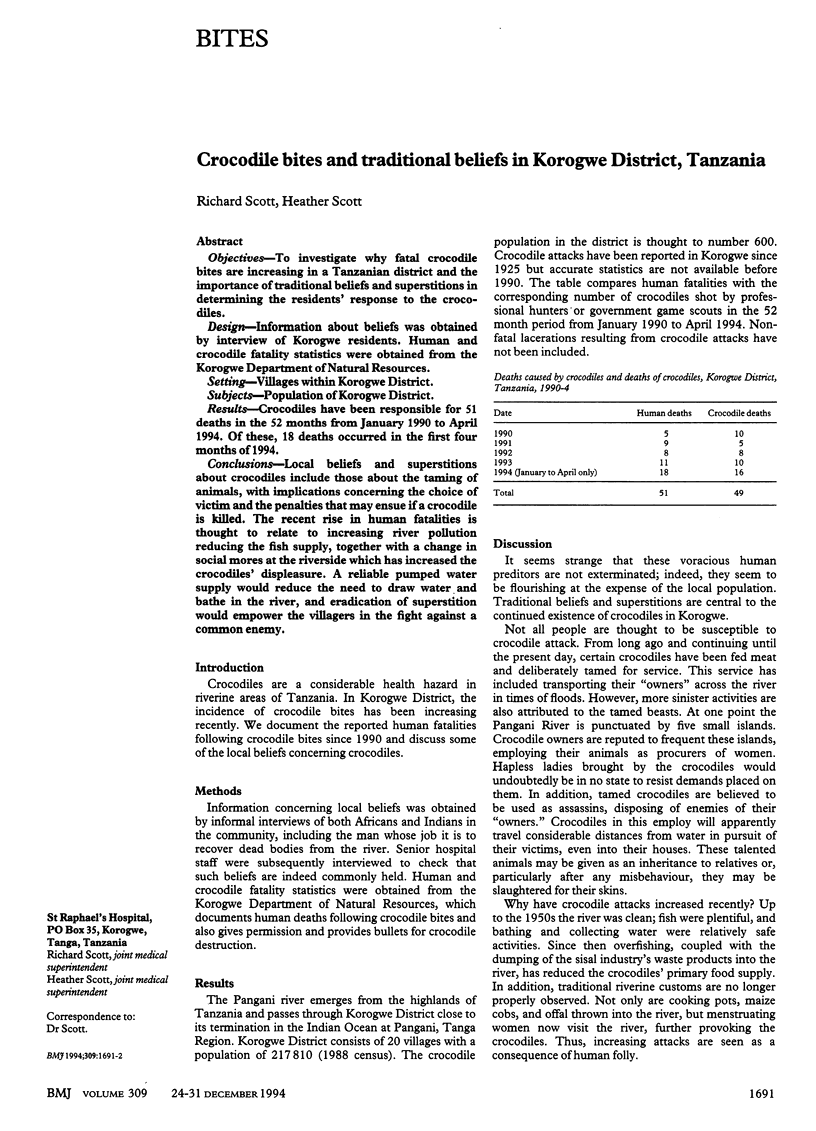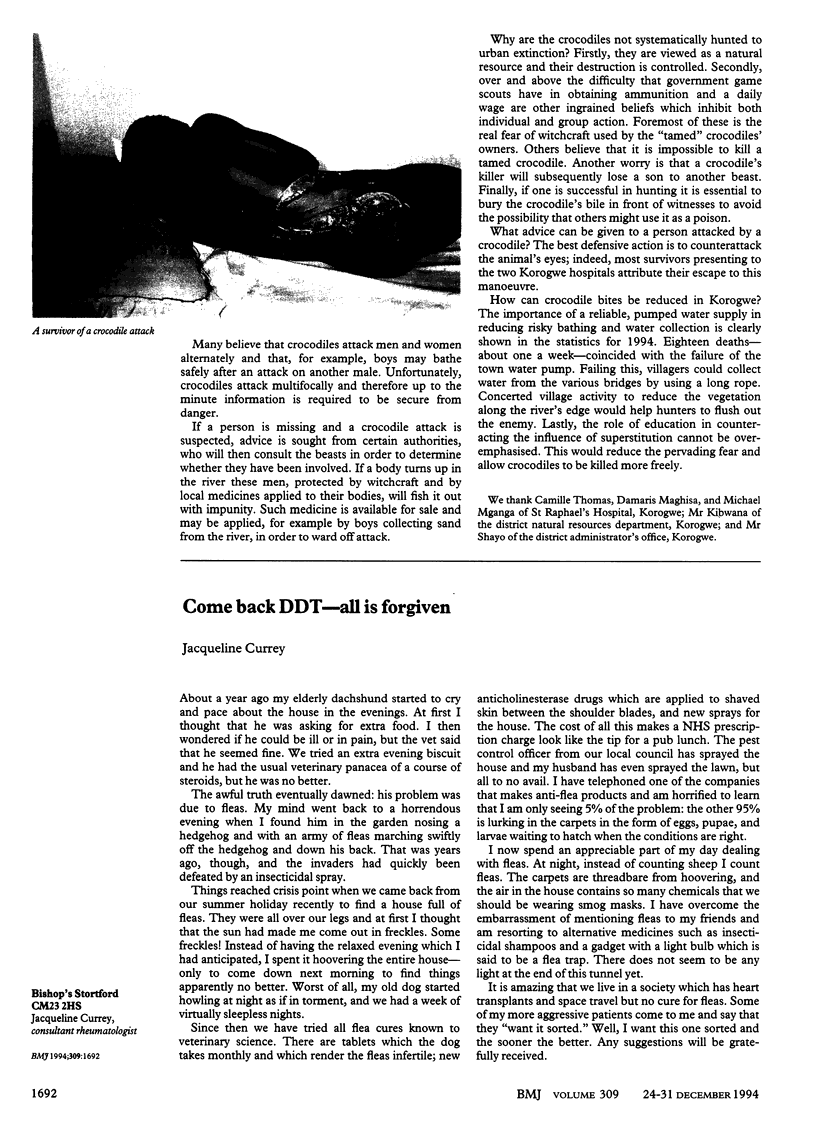Abstract
OBJECTIVES--To investigate why fatal crocodile bites are increasing in a Tanzanian district and the importance of traditional beliefs and superstitions in determining the residents' response to the crocodiles. DESIGN--Information about beliefs was obtained by interview of Korogwe residents. Human and crocodile fatality statistics were obtained from the Korogwe Department of Natural Resources. SETTING--Villages within Korogwe District. SUBJECTS--Population of Korogwe District. RESULTS--Crocodiles have been responsible for 51 deaths in the 52 months from January 1990 to April 1994. Of these, 18 deaths occurred in the first four months of 1994. CONCLUSIONS--Local beliefs and superstitions about crocodiles include those about the taming of animals, with implications concerning the choice of victim and the penalties that may ensue if a crocodile is killed. The recent rise in human fatalities is thought to relate to increasing river pollution reducing the fish supply, together with a change in social mores at the riverside which has increased the crocodiles' displeasure. A reliable pumped water supply would reduce the need to draw water and bathe in the river, and eradication of superstition would empower the villagers in the fight against a common enemy.
Full text
PDF




